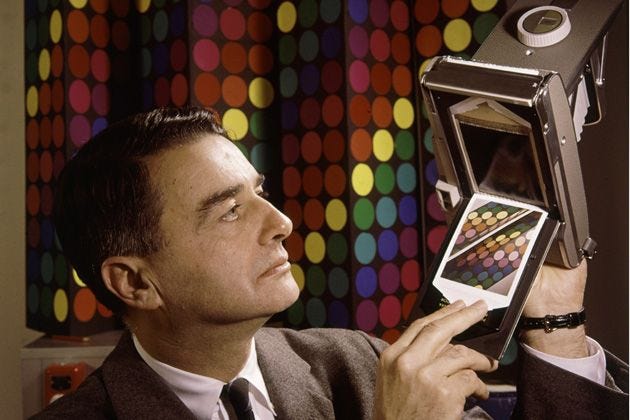Steve Jobs, Edwin Land and web3 founders
Building at the intersection of humanities and science
Steve Jobs mentioned to Walter Isaacson in his biography:
I always thought of myself as a humanities person as a kid, but I liked electronics. then I read something that one of my heroes, Edwin Land of Polaroid, said about the importance of people who could stand at the intersection of humanities and sciences, and I decided that’s what I wanted to do
The quote from Edwin Land is “Industry at its best it the intersection of Science and Art”.
The Two Cultures
The idea of sciences and humanities being two separate cultures — and the realization that there’s value in putting them together — is not new.
Scientist and novelist C. P. Snow has a famous lecture from 1959 about it: “The Two Cultures and the Scientific Revolution”. His thesis was that science and humanities had become split into "two cultures" and that this division was a major handicap to both in solving the world's problems.
A good many times I have been present at gatherings of people who, by the standards of the traditional culture, are thought highly educated and who have with considerable gusto been expressing their incredulity at the illiteracy of scientists.
Once or twice I have been provoked and have asked the company how many of them could describe the Second Law of Thermodynamics. The response was cold: it was also negative. Yet I was asking something which is the scientific equivalent of: Have you read a wor3rk of Shakespeare's?
I now believe that if I had asked an even simpler question – such as, What do you mean by mass, or acceleration, which is the scientific equivalent of saying, Can you read? – not more than one in ten of the highly educated would have felt that I was speaking the same language. So the great edifice of modern physics goes up, and the majority of the cleverest people in the western world have about as much insight into it as their neolithic ancestors would have had.
Web3 and Network States
I’m a strong believer that, more than any other area in tech today, web3 rewards people who can stand at the intersection of these two cultures.
So much of what is currently happening in crypto requires the founders to have an understanding of the technological foundation (which will generally establish the limit of what is currently possible in terms of scalability) and the ethos and culture — aka “the vibe” — that will guarantee that you maximize the output given that set of technical constraints
If you have a strong narrative and memes but the technological foundation is flawed or incomplete, the project will fail.
Failure is also a certainty for projects with strong technological foundations that can’t capture the attention of users because of the dry language, unwelcoming community or simply for not being fun.
Crypto is both a scientific and humanities movement, from the very beginning. Bitcoin itself has a social motivation underpinned by a technical solution.
On the subject of Network States I think the same will apply, especially in the beginning.
See you tomorrow!



